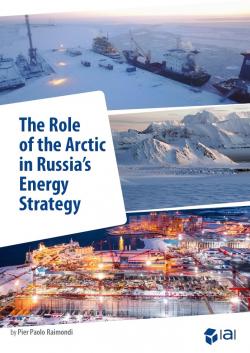The Role of the Arctic in Russia’s Energy Strategy: Features, Objectives and Perspectives following Russia’s War in Ukraine
Given the melting of Arctic ice, the Arctic has gained a growing relevance because of its vast energy resources and its potential role in international maritime trade. Russia seeks to exploit these resources and develop an international maritime trade route through the Northern Sea Route. The Arctic resources are considered to be crucial to address the declining production in the traditional oil and gas fields as well as to help Moscow to enhance its export diversification strategy both in terms of markets (Asia) and modes (liquefied natural gas). Indeed, the Arctic has become the powerhouse for Russia’s LNG ambitions (100 Mt by 2030). The development of Arctic resources and LNG exports is deeply intertwined with other national interests, such as development of the Northern Sea Route and the shipbuilding industry. Nonetheless, Russia faces serious challenges namely the lack of gas cargoes and the growing international sanctions, which can substantially undermine Russian ambitions.
-
Details
Rome, IAI, February 2024, 45 p. -
ISBN/ISSN/DOI:
978-88-9368-314-2
Executive summary
Introduction
1. The evolution of Russia’s Arctic regulatory and political framework
2. Challenging context for Russia’s energy superpower status: Declining production and international sanctions
3. The role of the Arctic for the Russian energy sector
3.1 From pipelines to LNG
4. Russian energy companies in the Arctic
4.1 Rosneft
4.2 Gazprom
4.3 Novatek
5. Energy resources and trade routes
6. Challenges
Conclusions
Box 1: The energy transition in Russia
Box 2: Sino-Russian energy cooperation
Topic
Tag
Related content
-
Ricerca02/11/2018
IAI-Eni Strategic Partnership
leggi tutto



